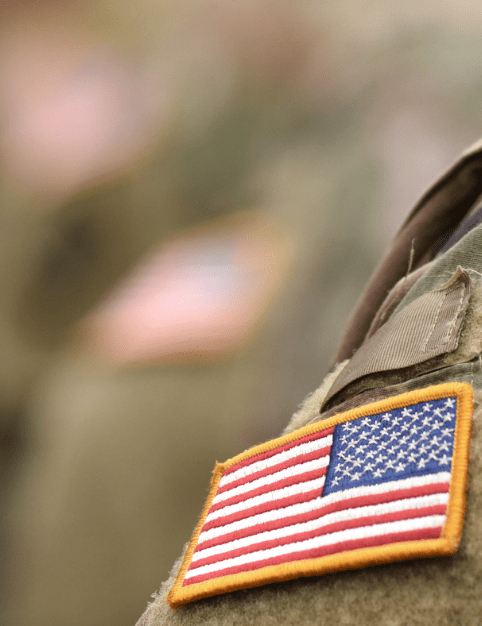Table Of Contents
A 100 percent disability rating, or a total disability rating is the highest percentage that can be given for service-connected compensation purposes. Although 100 percent is the highest schedular rating, there are certain situations in which a veteran can receive a greater amount of compensation.
Special Monthly Compensation
Special monthly compensation (SMC) is a monthly benefit for veterans who have service-connected conditions that result in severe impairment, including the loss or loss of use of extremities, blindness, the need for regular aid and attendance, etc. SMC is designed to compensate for non-economic factors such as personal inconvenience, social inadaptability, or the nature of a disability. There are multiple SMC rates depending on the veteran’s condition and the limitations caused by that condition.
SMC rates, except SMC(K) are paid instead of a veteran’s VA disability rating, not in addition to it. As of 2020 the levels of compensation associated with the various SMC rates are as follows:
· SMC(K). $110.31
· SMC(L). $3,864.90
· SMC(L1/2). $4,064.70
· SMC(S). $3,476.65
· SMC(M). $4,265.31
· SMC(M1/2). $4,558.37
· SMC(N). $4,852.09
· SMC(N1/2). $5,137.51
· SMC(O/P). $5,423.45
· SMC(R-1). $7,749.68
· SMC(R-2). $8,889.08
Aid and Attendance
The need for aid and attendance is a medical circumstance that veterans face when they require regular care from another person in order to carry out the activities of daily living. Aid and attendance is paid to veterans, their dependents, or survivors at rates higher than standard VA disability compensation. To qualify for aid and attendance benefits, veterans must need assistance or supervision to perform activities including, but not limited to:
· Getting dressed
· Bathing and maintaining personal hygiene
· Preparing meals and eating
· Using the restroom
· Adjustment of prosthetic or orthopedic appliances that most other would usually be able to perform alone
Other criteria that qualifies a veteran to receive aid and attendance benefits include:
· If the veteran’s mental disability requires the regular care of another person in order to protect them from hazards in their daily environment; OR
· If the veteran is “bedridden”, meaning that their medical condition is so severe that it requires the veteran to remain in bed
Aid and attendance benefits are usually prescribed under SMC(R). However, if a veteran is housebound benefits are provided under SMC(S). For a veteran to be considered housebound means that they are unable to leave their home indefinitely due to a service-connected condition.
Specially Adapted Housing and Automobile Special Adaptive Equipment
Veterans who meet certain criteria may be eligible to receive VA grants for specially adapted housing (SAH) and automobile adaptive equipment (AAE).
Specially Adapted Housing (SAH)
SAH grants are given to veterans with certain permanent and total service-connected conditions. These grants can be used to:
· Build a specially adapted home on land to be acquired
· Construct a home on land already owned if it is suitable for SAH
· Remodel an existing home if it can be made suitable for SAH
· Use the grant against the unpaid principle mortgage balance of an adapted home already acquired.
Automobile Adaptive Equipment (AAE)
AEE grants are reserved for veterans who have certain service-connected conditions and need special equipment to help them operate a vehicle. Examples of equipment includes, but is not limited to: power steering, power brakes, power windows, power seats, and special equipment necessary to assist the veteran into and out of the vehicle.
Combined Disability Ratings Greater than 100 Percent
There are times where a veteran may have multiple service-connected conditions that appear to add up to greater than 100 percent. However, when a veteran has multiple service-connected conditions, each with its own rating, the VA combines them using “VA math”.
To calculate a combined disability rating, the VA starts with the veteran highest disability rating, then works down the list of disabilities, combining them from highest to lowest.
Once the VA has combined all of the disabilities, it will round up to the nearest 10 percent and the veteran will receive that compensation rate.
Ultimately, the VA does not award disability ratings higher than 100 percent. Once veterans reach an 100 percent rating, the VA will pay them the highest compensation level regardless of additional disability ratings unless the qualify for SMC.
Veterans Help Group have been supporting veterans in getting the benefits they deserve since 1995. Call Veterans Help Group at 855-855-8992 or complete our free veterans benefits case evaluation form.

Congress Aims To Streamline Community Care For Veterans
Congress Aims To Streamline Community Care For Veterans Obtaining approval to see a doctor outside...

Major Victory: VA Invests Over $800 Million to Fight Veteran Homelessness
Major Victory: VA Invests Over $800 Million to Fight Veteran Homelessness The Department of...

What is the VA DBQ?
What is a VA DBQ? A VA Disability Benefits Questionnaire (DBQ) is a form used to convey medical...





